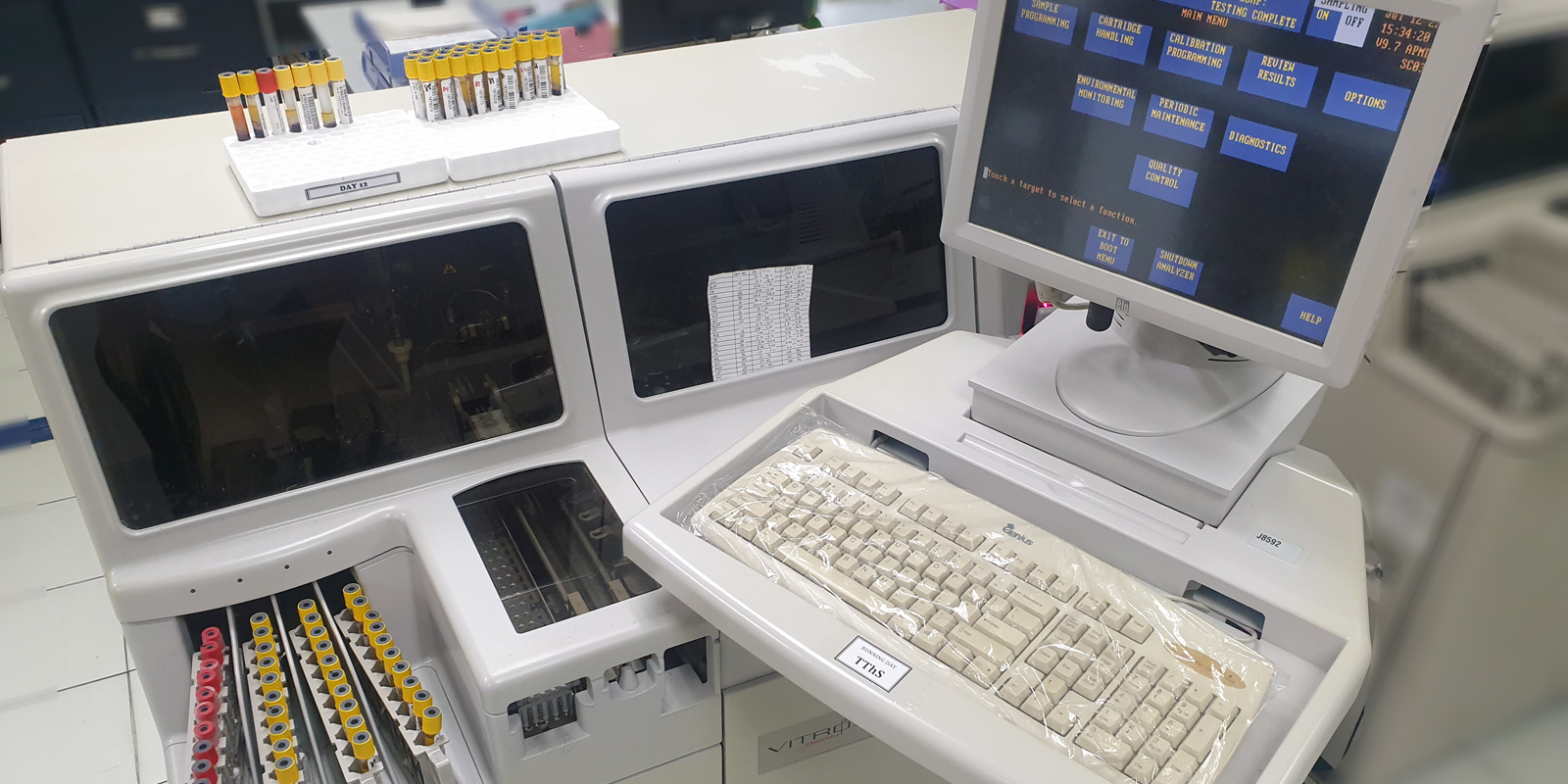Clinical Chemistry
Clinical chemistry refers to the biochemical analysis of body fluids. It uses chemical reactions to determine the levels of various chemical compounds in bodily fluids. The function of clinical chemistry and laboratory medicine is to perform qualitative and quantitative analyses on body fluids such as blood, urine, spinal fluid, faeces, tissue and other materials.
- ABO-Rh Blood Grouping
- 2 Hour PPBS
- 24 hr. Urine Calcium
- 24 hr. Urine Creatinine
- 24 hr. Urine Creatinine Clearance
- 24 hr. Urine Protein
- Alanine Aminotransferase (SGPT)
- Albumin
- Alkaline Phosphatase
- Amylase
- Aspartate Aminotransferase (SGOT)
- Bicarbonate/CO2
- Bilirubin Fractionation
- Blood Urea Nitrogen
- Calcium
- Chloride
- Cholesterol
- Creatine Kinase
- Creatine Kinase MB
- Creatinine
- Creatinine Kinase – MM
- Ferritin
- Gamma Glutamyltransferase
- Glucose
- HDL Cholesterol
- Hemoglobin A1c
- Insulin
- Ionized Calcium
- Iron
- Lactate Dehydrogenase
- Lipase
- Lipid Profile
- Magnesium
- Microalbumin
- Oral Glucose Challenge
- Oral Glucose Tolerance Test
- Oral Glucose Tolerance Test - 3rd hr.
- Phosphorous
- Potassium
- Random Glucose
- Random Urine Protein/albumin
- Random Urine Protein Creatinine Ratio
- Sodium
- Total Acid Phos
- Total Iron Binding Capacity
- Total IgE
- Total Protein
- Total Protein, Albumin, A/G Ratio
- Transferrin
- Triglyceride
- Troponin-I (Quantitative)
- Troponin-T
- Uric Acid
- Urine Amylase
- Urine Chloride
- Urine Creatinine
- Urine Glucose
- Urine Phosphorus
- Urine Potassium
- Urine Sodium
- Urine Uric Acid
- Urine Ketone
- Urine Urobilinogen

